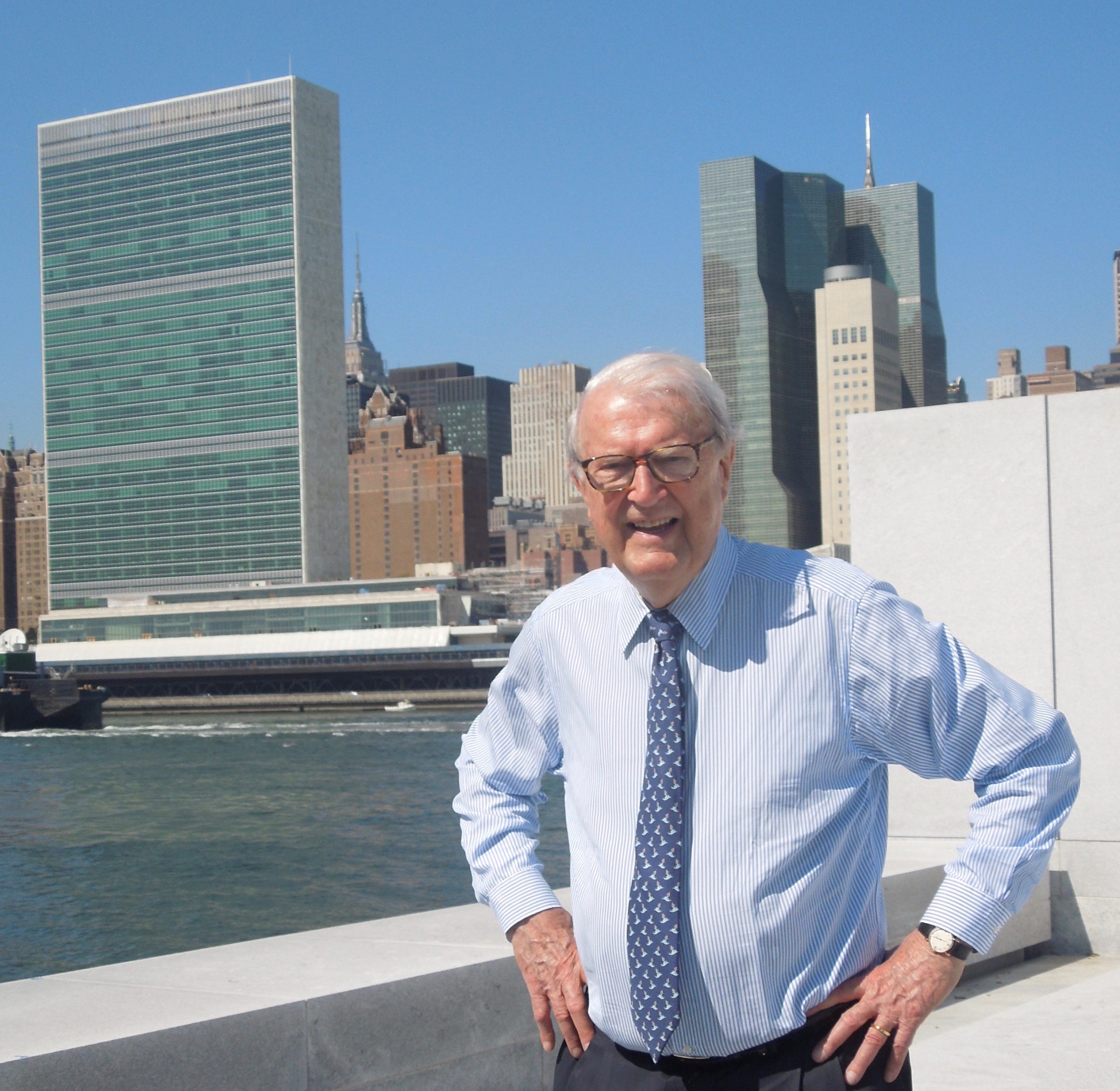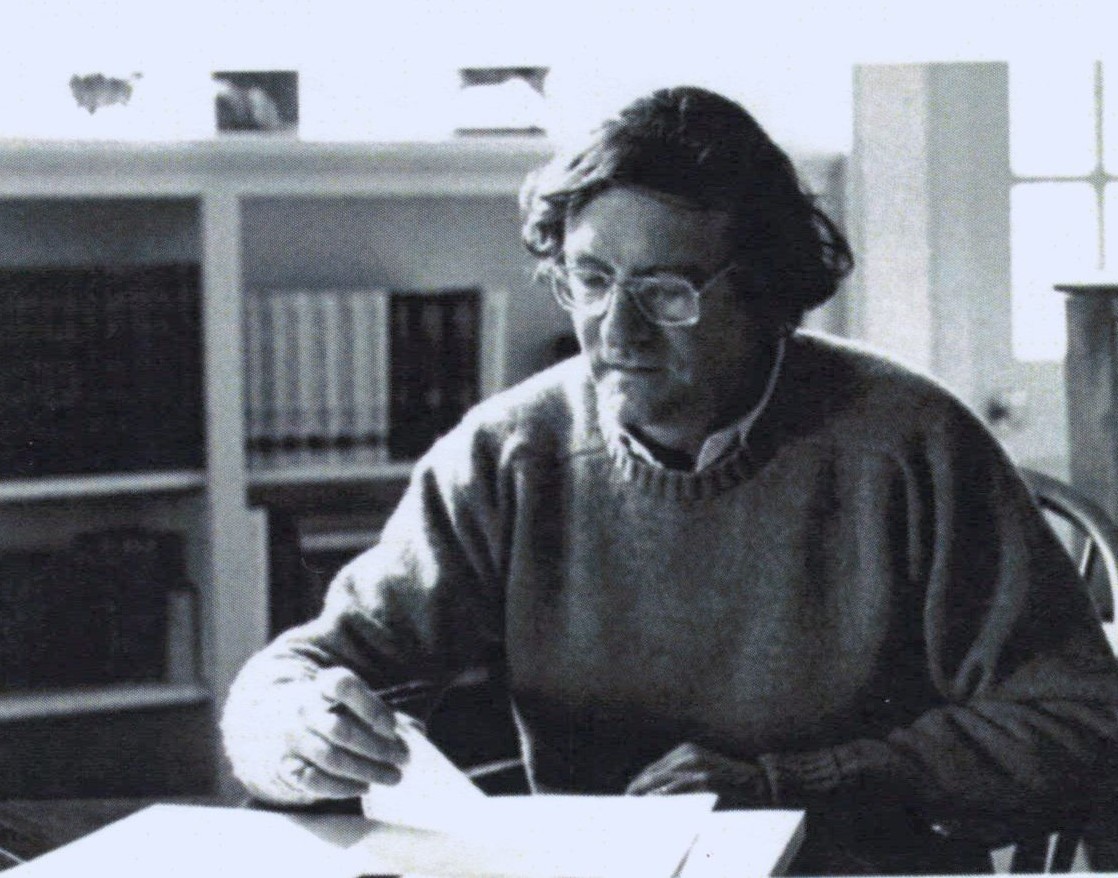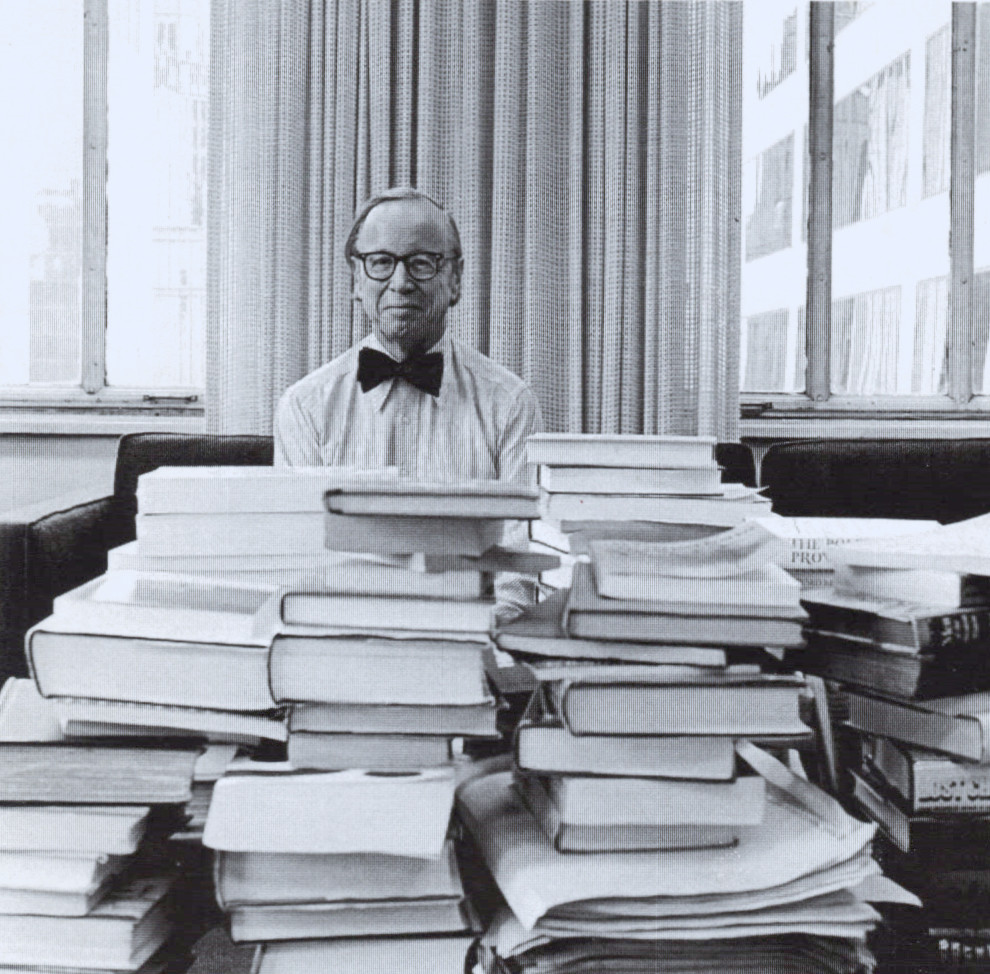The Founders of the CAAF
Events and encounters at the Century have shaped American culture and civic life. Its three member-founders regarded the Association’s archives as indispensable to understanding the nation’s art and history.
Ambassador vanden Heuvel organized and assembled support for the non-profit public benefit foundation that administers, conserves, and presents the club’s growing archival treasury.
The ambassador said Henry S.F. Cooper. Jr. “showed us the way” by identifying, salvaging and securely housing invaluable reports, correspondence, photographs, film, audio recordings and other material, some dating back to the Association’s mid-19th-century origins.
Arthur M. Schlesinger, Jr., whom Ambassador vanden Heuvel called “the pre-eminent historian of our time,” fostered the Foundation’s mission. At the Century’s rostrum, Schlesinger often emphasized that history is to the nation what memory is to the individual. He stressed that the Archives – the Association’s institutional memory – were essential to understanding the club’s values, its membership and its role in cultural and civic affairs.
Here are brief sketches of our founders, written by current CAAF president Warren Wechsler.

William vanden Heuvel’s career was inspired by Franklin and Eleanor Roosevelt. He founded the institute in their name to study and promote their legacy, and oversaw the creation of the Franklin D. Roosevelt Four Freedoms Park, a monument to the Roosevelts in the East River within sight of the United Nations, one of their cherished causes. A graduate of Cornell University and its law school, William vanden Heuvel’s served as Special Assistant to Ambassador to William Donovan in Thailand, Executive Assistant to Attorney General Robert F. Kennedy, Ambassador to the United Nations’ agencies in Geneva, and Deputy Permanent Representative to the United States’ Permanent Mission to the UN. He led the Justice Department’s initiative to restore public education in Prince Edward County, Virginia when local authorities closed schools in defiance of the Supreme Court’s ruling to integrate classrooms racially. Mayor John V. Lindsay, a Centurion, appointed the ambassador Chairman of the New York City Board of Corrections where he reduced overcrowding in prisons and improved inmates’ medical care. He was also Vice President of the International Rescue Committee.
The ambassador was a compelling witness to history and a grand impresario of Century festivities celebrating his comrades’ milestones, occasions attended by former cabinet officers, novelists and movie stars, among other luminaries. His Monthly Meeting address “Franklin D. Roosevelt—A Man of the Century” discussed the 32nd president’s membership at the club, FDR’s transformation of government into an instrument for improving citizens’ lives and his leadership in defending democracy. Interviewed at the club when his memoir “Hope and History” was published, William vanden Heuvel recounted, among other episodes, helping to re-settle Hungarian freedom fighters fleeing Soviet oppression, being in the White House on the day following President Kennedy’s assassination and dealing with prison uprisings. As a public servant, social justice advocate and philanthropist, William vanden Heuvel holds a place of honor on the Century’s rolls.

Like his father, Henry S.F. Cooper, Jr. was a Centurion for over fifty years. After graduating from Yale College, Henry joined The New Yorker. He became its renown chronicler of America’s space program, contributing forty signed long articles to the magazine and many “Talk of the Town” pieces. He also published seven books on space travel. His accolades included a Guggenheim fellowship and a Westinghouse Science Writing Award. In civic and cultural arenas, Henry Cooper served as President of the New York Society Library, founded in 1754; a trustee of the Preservation League of the State of New York and Honorary Chairman of the James Fenimore Cooper Society, which honors his novelist ancestor, a seminal figure in American literature. He also held key positions in several organizations in Cooperstown, New York where his family has been a presiding presence for generations.
As Andre Bernard, a revered president of the club, put it, “Henry was and always will be the Voice of the Century.” Henry Cooper served on nine committees and chaired four of them. He was editor of the Century Bulletin for a decade, writing the monthly essays that keenly reported on how imagination and innovation, no less than tradition, shaped life at the association. Henry was also the author of “Inside the Century,” an enchanting portrait of the clubhouse’s embracing elegance. He served a term as Secretary of the Board of Management where his minutes, read in Henry’s distinctive Old New York drawl, introduced the Monthly Meeting programs. He was presented with the Century Association Archives Foundation Award – an honor conferred on his father as well – for personifying the cultural and civic commitments that distinguish Centurions and the Century Medal for his exceptional service to the club.

Author of magisterial volumes of American history, including The Age of Jackson and The Age of Roosevelt, Arthur Schlesinger was a Professor of History at Harvard, his alma mater, and the Albert Schweitzer Professor of the Humanities at the City University of New York’s Graduate Center. A commentator as well as an historian, he was also a confidant of political leaders here and abroad, a Special Assistant to President John F. Kennedy, an adviser to Attorney General and Senator Robert F. Kennedy and a founder of the Americans for Democratic Action, an anti-Communist organization of liberals. During WW II, Arthur Schlesinger served in the Office of War Information and Office of Strategic Services. Winner of two Pulitzer Prizes and two National Book Awards, he was said to have written 5,000 words a day at the crest of his career, producing almost twenty books and countless articles and speeches.
The Century, which admitted him at the age of 28, was Arthur Schlesinger’s haven for over sixty years. His journal entries record illuminating conversations there with many of his lifetime’s most influential men and women. Dining at the club two or three times a week, he and his companions—who included presidential candidates, diplomats, journalists, musicians, actors and publishers—vastly enjoyed the Century as a venue for introducing, exploring and refining ideas that informed public policy and the arts. In his last appearance at the association’s podium three months before he died, Arthur Schlesinger reminded the membership of “the endless excitement of historical writing, the search to reconstruct what went before, a quest illuminated by those ever-changing prisms that continually place old questions in a new light.” He enriched the Century decade after decade with his penetrating insights at many memorable club forums, his devotion to the association, and his spirited, stimulating company.
Founding Trustees and Former Staff
Lansing Lamont
Founding President
William J. Dean
Founding Secretary-Treasurer
Stephen Parks
Founding Trustee
John Sears
Founding Trustee
Russell Flinchum
Archivist, 1999-2013
Jonathan Harding
Curator
Timothy J. DeWerff
Archivist, 2014-2021